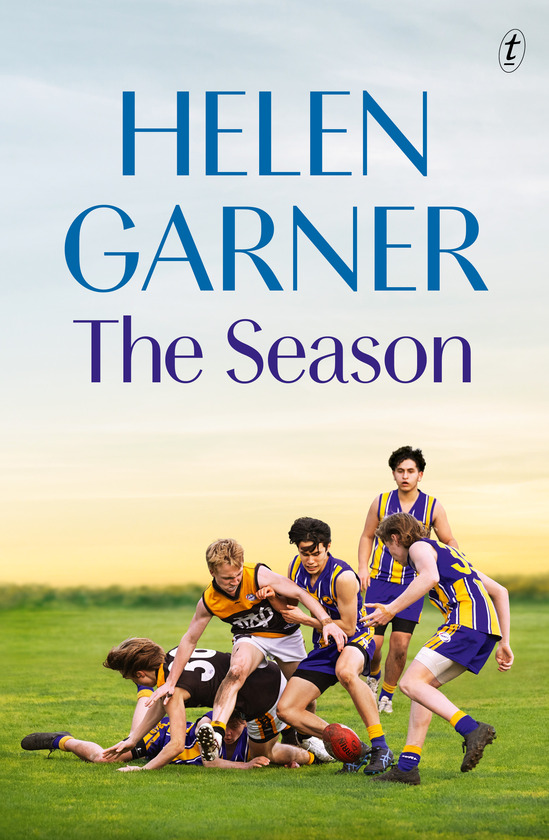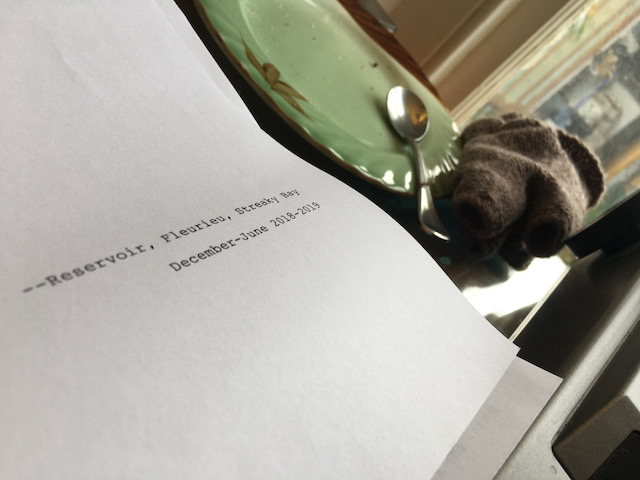Unforgiveable Fire: The Saint of Bright Doors
a novel by Vajra Chandrasekera
I’ve been thinking about shadows. About magic and power.
“There is nothing,” said the monarch, “except the power which you pretend to seek: power to grind and power to digest, power to seek and power to find, power to await and power to claim, all power and pitilessness springing from the nape of the neck.”
“Thank you.”
“Love is a trick played on us by the forces of evolution. Pleasure is the bait laid down by the same. There is only power. Power is of the individual mind, but the mind’s power is not enough. Power of the body deides everything in the end, and only Might is Right..[“]
TH White The Once and Future King
The Saint of Bright Doors won the Nebula award for best novel. It was nominated for the Hugo. It has won or been nominated for others. What interests me—this is not a review, so spoilers—is the notion that the narrator is the figure so often chosen as a villain in stories, whose third person descrpition of Fetter, arguably not the real protagonist, is so close I wondered often why it wasn’t in the first person. I will go back to look for clues on my second read.
We are not good readers these days. Everyone complains of it. Many blame social media, algorithms, now AI. (Personally, I believe things were going that way before, and it’s just another way of see Distraction and Stand on Zanzibar, hell, The Demolished Man.)
But this novel is so modestly written, and moving, that I had no possible distraction, if you don’t count eating and sleeping. I put down Olga Tokarczuk’s The Books of Jacob by to read this; doesn’t mean he’ll win a Booker or Nobel, I’m talking about attention.
Vajra Chandrasekera is one we’re paying attention to at the moment, for better or worse. For me it’s better. I hope it is for him as well, that the book’s life and his career lead him into more.
The notion of the author’s persona as a little bit of flowing darkness moving from corpus callosum to bowel (via penis) and influencing the characters via small changes in their chemistry is a beautiful one and deserves accolades. It’s a lovely riff on the Graham Greene’s “splinter of ice in the heart of every writer.”
Also, of what it takes to mend a political situation.
Also, a mediation on predestination.
The doors, too, offer a wonderful take on the possibilites killed by religio-political machinations, the lives (and whole landmasses) rendered uninhabitable with the denial of freedom that is cloaked in the offer of freedom, the shutting off of human possibilities in sexuality, art, and just plain fun.
A boy is trained to kill by his mother, whose beautiful name, Mother-of-Glory, is by the end deeply ironic. Of course he rebels. It’s altogether possible she foresaw this.
It’s a classic born assassin trope and the undermining of this by Fetter, and perhaps his shadow, provides the way into the next main character here, the city of Luriat (an anagram of “ritual”), which is like a tropical version of Delany’s Bellona, the ever-burning city in Dhalgren. Its elaborate castes and neighbourhood heirachies are, we learn, all the product of the change Fetter’s father rang in the fabric of reality.
Later we learn this all the Bright Doors there are the product of the pinched off possibilites the so-called Saint the Perfect and the Kind, his father, has left in a megalomaniac and petty destruction of his mother’s island home, a place before names. Fetter travels from Acusdab (closest anagram “abacus”) to Luriat after his training is complete and he has made his first Unforgivable crime, assassination of his grand uncle.
“The Five Unforgivables are the major crimes as defined by your father’s ideological apparatus,” Mother-of-Glory says. She has given this speech so often Fetter knows it by heart, which is the point. “They are declared to be outside the jurisdiction of any regime of restorative or retributive justice. The Five Unforgivables are, in order of severity, matricide; heresy leading to factionalism; the sancticide of votaries who have reached the fourth level of awakening; patricide; and the assassination of the Perfect and Kind. By definition, they cannot be forgiven and cannot be redeemed. That means that if you commit any one of them, the cult will hunt you for the rest of your life, and make your name a curse for generations to come. Your mission is to commit them all. Your father abandoned us. We were unchosen, cast out of his eschatology. We are going to destroy your father’s cult and salt the earth where it falls. Now you say it.”
Fetter repeats the catechism, obligingly. He could recite these words in his sleep.
At this stage his mother’s project seems all rather nasty and worth our hero’s spurning. We are in the realm of dreams with a floating boy assassin with amputated shadow left somewhere behind. In Luriat we’re in the modern world, recognisably a place of wars and plagues, charlatans and inequality.
Fetter seems to be having a grim kind of fun, with a boyfriend and support group of other significant beings who have missed or denied themselves a possible destiny. Fetter plays all of this close to his chest, perhaps because his father is such a big cheese in the Saint world. As things turn out, despite Fetter’s best efforts there is no need for forgiveness or redemption for him.
The Perfect and the Kind gets his desserts and we have the mysteries sort of unveiled for us. This is more or less offstage, which for some I recognise might be unsatisfactory. However, Chandrasekera is slipping away from the genre’s expectations like the shadow he’s following, himself a shadow of the shadow.
There is a lovely description of a prison as large as a country (possibly) and Fetter’s rise from idiot to clerk to healer—and abruptly the story shifts sideways again, to the Perfect and the Kind’s inner circle, or at least his protection and some insight into his regime’s careless and intentional cruelty. I am not entirely sure what the Perfect and the Kind intends for the world, and it’s entirely possible he’s not after anything but survival and aggrandizement. He’s certainly not after pleasure, since by the time Fetter arrives in his environs his relationship with his offsider and sex partner is empty. Not love, The Mother-of-Glory has told Fetter all about their relationship, and what his father brought:
They infected us with strange ideas from the south-west. They brought doctrines of shame and disgust for the body and the glorification of the perfected mind. They asked us to look at our bodies not as the clean and perfect instruments of living that we had known, but as bags of flesh containing the thirty-one parts of impurity: the hairs of the head and the body; the nails and the teeth; the skin, flesh, and tendons; the bones and marrow; the heart, liver, and kidneys; the lungs, pleurae, and spleen; the intestines large and small—the shit and undigested food; the bile, phlegm, and pus; the blood, sweat, and tears; the fat, sebum, and spit; the mucus, the synovial fluid, the piss. They asked us to reflect on this and be repulsed: is the body not disgusting?
Like this, they brought endless categorizations and subcategorizations and enumerations of being and experience. They brought, almost incidentally, the politics they knew, of centralization, of the consolidation of power, a politics of thrones.
It is significant that the shadow, small dot of yin in the bowel of the Perfect and Kind’s yang, entered through his “yang” during sex with his employee. This is an integrated vision of diversity against perfection, of plurality against totalitarianism, of sharing against accumulation.
I see the world of Bright Doors as somehow upside down, with the island to the fairytale north of the subcontinent that is so big there is no continent for it to hang off and it is the only land in the world of ocean.
Work of this kind would have been impossible in the “Golden Age” of Science Fiction, and impossible without the reaction to it in the 60s and 70s. It is also impossible to see where this novel came from without other literatures, the kinds arising out of places where the stories are not entirely Christian, such as South America and Asia.
(Of course, Blish’s After Such Knowledge is a great example of where such magic can come entirely out of European tales and sui generis minds, I’m in no way bagging that.)
I’d like to see wonderful work of this kind arising from my own continent, which it has, and for the rest of our societies to come to the conclusion I have about this work: it is not merely the vehicle for an allegorical expression of the urge to diversity and freedom, unpefectability of heart and blood, it is the manifestation of such a life. I always try to see the reality of existence behind a work of art. This is not the author’s biographical world. It is as curated as any other aspect of a novel.
It does, however, have the ability to seep around the curation, to say things about an everyday life that the purely intentional might actually occlude. It might take many years for this stuff to find focus, since we take so much for granted about an increasingly global circumstance of life. It might also prove very thin, as in a superhero movie, whose only colloquialism is the globally translated one.
In The Saint of Bright Doors, we’re constantly getting nods at such circumstance. It’s not totally visceral, but this is Chandrasekera’s first novel. He’s steering intuitively through all the right things to have accumulated in some years a really substantial body of work. I won’t make any predictions, but I will read what comes.

| The Saint of Bright Doors | Vajra Chandrasekera | Tordotcom | 368pp hc | July 2023 |









